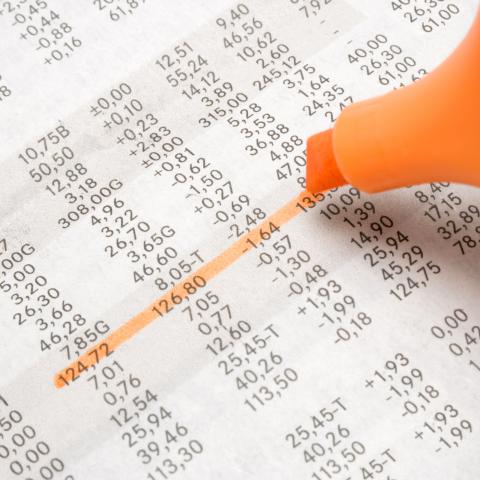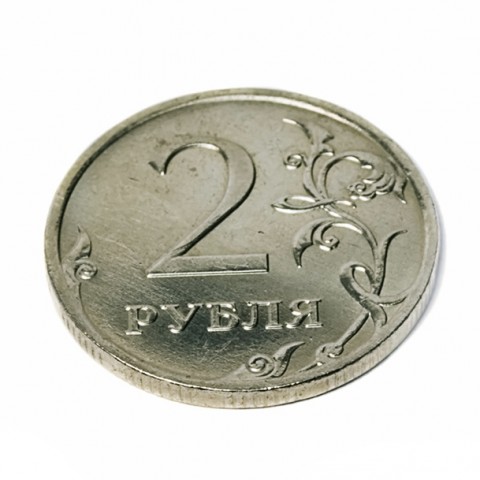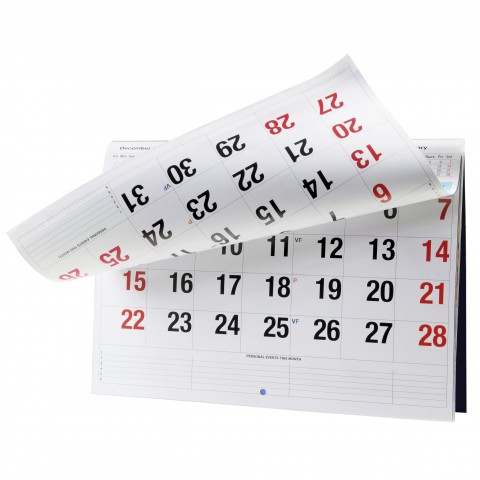There’s hardly a day that passes without numbers. Russians don’t differ that much from other nations in this area—they count money, arrange meetings for specific dates, set alarms for a specific time, count the minutes until the end of the working day… Without numbers, you wouldn’t even be able to share how old you are. In fact, without learning how to speak Russian numbers, you’ll be like a fish out of water while in Russia!
Learning numbers and getting better at using them is essential both in life and in business. This is why here at RussianPod101 we decided to teach you how to say numbers in Russian with Russian numbers’ pronunciation, and to help you practice using them right away in interesting exercises. So, let’s go ahead and start with Russian numbers 1-100, and go from there!
Table of Contents
- Learn Russian Cardinal Numbers
- Learn Russian Ordinal Numbers
- How to Give a Mobile Phone Number in Russian
- How to Talk about Prices
- How to Tell the Date in Russian
- How to Tell the Time in Russian
- Conclusion
1. Learn Russian Cardinal Numbers
1- Russian Numbers 0-10
Here are the simplest numbers in the Russian language, upon which you can build to create bigger numbers.
- 0 — ноль (nol’)
Interesting fact: There’s also a less common name for zero: нуль (nul’). Usually, it’s used in terminology. For example, равняться нулю (ravnyat’sya nulyu) means “to be equal to zero.” Most of the time, both words can be used interchangeably. However, in some expressions, only one word can be used. For example: ноль внимания (nol’ vnimaniya) which means “zero attention; no attention.”
- 1 — один (odin) Also, number one in Russian can be called раз (raz).
- 2 — два (dva)
Please note that when the numbers один (odin) meaning “one” and два (dva) meaning “two” are put before the noun, they can change their form according to the gender of the following noun (masculine, feminine, or neutral):
Masculine: один (odin); два (dva)
Feminine: одна (odna); две (dve)
Neutral: одно (odno); два (dva)
- 3 — три (tri)
- 4 — четыре (chetyre)
- 5 — пять (pyat’)
Interesting fact: Number five in Russian culture has special meaning, as it’s the highest grade in a school system. The grades usually go: two (“bad”), three (“passable”), four (“good”), and five (“excellent”).
- 6 — шесть (shest’)
- 7 — семь (sem’)
- 8 — восемь (vosem’)
- 9 — девять (devyat’)
- 10 — десять (desyat’)
Examples:
- В комнате два человека (V komnate dva cheloveka)—”There are two people in the room.”
- Она скинула пять килограммов за один месяц (Ona skinula pyat’ kilogrammov za odin mesyats)—”She has lost five kilos in one month.”
- У меня есть три желания (U menya yest’ tri zhelaniya)—”I have three wishes.”
2- Russian Numbers 11-100
- 11 — одиннадцать (odinnadtsat’)
- 12 — двенадцать (dvenadtsat’)
- 13 — тринадцать (trinadtsat’)
- 14 — четырнадцать (chetyrnadtsat’)
- 15 — пятнадцать (pyatnadtsat’)
- 16 — шестнадцать (shestnadtsat’)
- 17 — семнадцать (semnadtsat’)
- 18 — восемнадцать (vosemnadtsat’)
- 19 — девятнадцать (dev’atnadtsat’)
- 20 — двадцать (dvadtsat’)
- 30 — тридцать (tridtsat’)
- 40 — сорок (sorok)
- 50 — пятьдесят (pyat’desyat)
- 60 — шестьдесят (shest’desyat)
- 70 — семьдесят (sem’desyat)
- 80 — восемьдесят (vosem’desyat)
- 90 — девяносто (devyanosto)
- 100 — сто (sto)
Compound numerals are formed the same way as English ones are. Take a look at these examples to improve your numbers in Russian vocabulary:
- 21 — двадцать один (dvadtsat’ odin)
- 33 — тридцать три (tridtsat’ tri)
- 146 — сто сорок шесть (sto sorok shest’)
- 174 — сто семьдесят четыре (sto sem’desyat chetyre)
Examples:
- Программа загрузилась на сорок три процента (Programma zagruzilas’ na sorok tri protsenta) — “The program has downloaded on forty-three percent.”
- Я эту книгу и за сто лет не прочитаю! (Ya etu knigu i za sto let ne prochitayu) — “I won’t be able to finish this book even in one hundred years!”
- Мне тридцать два года (Mne tridtsat’ dva goda) — “I am thirty-two years old.”
3- Russian Numbers from 200 to 1-million
- 200 — двести (dvesti)
- 300 — триста (trista)
- 400 — четыреста (chetyresta)
- 500 — пятьсот (pyat’sot)
- 600 — шестьсот (shest’sot)
- 700 — семьсот (sem’sot)
- 800 — восемьсот (vosem’sot)
- 900 — девятьсот (devyat’sot)
- 1000 — тысяча (tysyacha or tyshcha) or одна тысяча (odna tysyacha). The shorter version is used in spoken language.
- 2000 — две тысячи (dve tysyachi or dve tyshchi)
- 3000 — три тысячи (tri tysyachi or tri tyshchi)
- 100,000 — сто тысяч (sto tysyach or sto tyshch)
- 1,000,000 — миллион (milion)
Examples:
- На митинг пришло тысяча человек (Na miting prishlo tysyacha chelovek) — “One-thousand people came to the public gathering.”
- У меня зарплата семьдесят тысяч рублей в месяц (U menya zarplata sem’desyat tysyach rubley v mesyats) — “My salary is 70,000 rubles per month.”
Great! Now you know how to say Russian Cardinal numbers! We advise you to work on your pronunciation in our voice recording exercise. You can also get a better idea of how to pronounce Russian numbers by visiting our relevant vocabulary list, where you can find many numbers accompanied by an audio of their pronunciation.
2. Learn Russian Ordinal Numbers
For the next part of this numbers in Russian lesson, we’ll go over Russian ordinal numbers.
Russian ordinal numbers behave like an adjective in a sentence. Its ending changes according to the gender of the following noun (masculine, feminine, neutral, or plural). In Russian dictionaries, adjectives are usually given in the masculine form:
- Первый (pervyy) — “the first”
- Второй (vtoroy) — “the second”
- Третий (tretiy) — “the third”
- Четвертый (chetvyortyy) — “the fourth”
- Пятый (pyatyy) — “the fifth”
- Шестой (shestoy) — “the sixth”
- Седьмой (sed’moy)— “the seventh”
- Восьмой (vos’moy) — “the eighth”
- Девятый (devyatyy) — “the ninth”
- Десятый (desyatyy) — “the tenth”
- Одиннадцатый (odinnadtsatyy) — “the eleventh.” Please note that the letter д in the number одиннадцатый and in the following numbers is not pronounced.
- Двенадцатый (dvenadtsatyy) — “the twelfth”
- Тринадцатый (trinadtsatyy) — “the thirteenth”
- Четырнадцатый (chetyrnadtsatyy) — “the fourteenth”
- Пятнадцатый (pyatnadtsatyy) — “the fifteenth”
- Шестнадцатый (shestnadtsatyy) — “the sixteenth”
- Семнадцатый (semnadtsatyy) — “the seventeenth”
- Восемнадцатый (vosemnadtsatyy) — “the eighteenth”
- Девятнадцатый (devyatnadtsatyy) — “the nineteenth”
- Двадцатый (dvadtsatyy) — “the twentieth”
Compound numerals are formed the same way that English ones are. The first part stays a cardinal number and the second part becomes ordinal. For example:
- Двадцать первый (dvadtsat’ pervyy) — “the twenty-first”
- Тридцать второй (tridtsat’ vtoroy) — “the thirty-second”
- Сорок третий (sorok tretiy) — “the forty-third”
- Пятьдесят четвертый (pyat’desyat chetvyortyy) — “the fifty-fourth”
- Шестьдесят пятый (shest’desyat pyatyy) — “the sixty-fifth”
- Семьдесят шестой (sem’desyat shestoy) — “the seventy-sixth”
- Восемьдесят седьмой (vosem’desyat sed’moy) — “the eighty-seventh”
- Девяносто восьмой (devyanosto vos’moy) — “the ninety-eighth”
- Сто двадцать шестой (sto dvadtsat’ shestoy) — “the one-hundred twenty-sixth”
If you want to write Russian ordinal numbers with numerals, please: write a number, add a hyphen, and add the last two letters of the last number-word. For example:
- Первый (pervyy) — 1-ый — “the first”
- Второй (vtoroy) — 2-ой — “the second”
- Третий (tretiy) — 3-ий — “the third”
- Четвертый (chetvyortyy) — 4-ый — “the fourth”
- Пятый (pyatyy) — 5-ый — “the fifth”
- Девяносто восьмой (devyanosto vos’moy) — 98-ой — “the ninety-eighth”
- Сто двадцать шестой (sto dvadtsat’ shestoy) — 126-ой — “the one-hundred twenty-sixth”
Examples:
- Кто двадцать седьмой по списку? (Kto dvadtsat’ sed’moy po spisku?) — “Who is 27th on the list?”
- Я родился в тысяча девятьсот девяносто первом году (Ya rodilsya v tysyacha devyat’sot devyanosto pervom godu) — “I was born in 1991.”
Please note that Russian ordinal numbers behave exactly as adjectives in a sentence. This is why they change their case according to the case of the noun to which they belong. You can learn more about Russian cases or get a lesson in our MyTeacher program for Russian-learners to understand this difficult, but important, Russian grammar rule quickly.
3. How to Give a Mobile Phone Number in Russian
1- How to Write Russian Phone Numbers
Russian mobile phone numbers can be written in different ways:
- +7 910 098 76 54
- 79100987654
- +7-910-098-76-54
But the right way to do it looks like this: +7 (910) 098-76-54.
So, you leave a space after +7, put the next three numbers into brackets, then put another space, then put hyphens after three digits, and after the next two.
2- The Difference Between 8 and +7 in Russian Phone Numbers
Russian numbers can be given in two ways:
- 8 (910) 987-65-43
- +7 (910) 987-65-43
As you can see, the difference is only in the first number.
In the first case, it’s just восемь (vosem’), which means “eight.” In the second case, it’s + and семь (sem’), meaning “seven.” The thing is, dialing a number with 8 will work only in Russia, while 7 is an international code of Russia and will work if you call from abroad. + is the symbol for an international format of a phone number.
Exercise. Now it’s time for some Russian numbers practice. Your Russian friend gave you his phone number: 89159998877. You’re currently not in Russia. How will you dial this phone number to call him? (Write the number with brackets, spaces, and hyphens).
_________________
Answer: +7 (915) 999-88-77
3- How to Pronounce Russian Phone Numbers
When you know the rules of how to write the number correctly, it’s easy to read the number. The thing is, it’s read as it’s grouped. The first number (8 or +7) in spoken language is often skipped. If not, just read it as one simple number.
The numbers in brackets are read as one number. For example, девятьсот десять (devyat’sot desyat’) is “910.”
Then read three numbers, separated by hyphens. For example: сто тридцать один – пятьдесят семь – сорок два (sto tridtsat’ odin – pyat’desyat sem’ – sorok dva) means “131-57-42.”
If the first number of a two-digit number is zero, then read it like that: ноль семь (nol’ sem’), meaning “07.”
“+7” is pronounced as плюс семь (plyus sem’).
Examples:
- Восемь, девятьсот девятнадцать, семсот шестьдесят четыре, ноль девять, восемнадцать (vosem’, devyat’sot devyatnadtsat’, sem’sot shest’desyat chetyre, nol’ devyat’, vosemnadtsat’) — “8 (919) 764-09-18.”
- Восемь, девятьсот восемьдесят пять, семьсот двадцать один, тридцать один, шестьдесят девять (vosem’, devyat’sot vosem’desyat pyat’, sem’sot dvadtsat’ odin, tridtsat’ 0din, shest’desyat devyat’) — “8 (985) 721-31-69.”
4. How to Talk about Prices
1- About Russian Currency
The Russian currency is called the рубль (rubl’) or “ruble” in English. The currency sign for the Russian ruble is ₽. You may also come across a Russian coin, which is called a копейка (kopeyka) or “kopeck.” There are one-hundred of them in one ruble. Kopecks are rarely used nowadays.
If you want to learn more about Russian currency, please check out our free three-minute video lesson.
2- How to Pronounce Prices in Russian
To talk about prices, use Russian Cardinal Numbers. The word рубль (rubl’) meaning “ruble” and the word копейка (kopeyka) meaning “kopeck” change their form according to the number before them. For most numbers, the form is рублей (rubley) meaning “rubles” and копеек (kopeyek) meaning “kopecks.” Let’s learn four exceptions for the numbers 1, 2, 3, and 4:
- 1 ₽ — один рубль (odin rubl’)
- 2 ₽ — два рубля (dva rublya)
- 3 ₽ — три рубля (tri rublya)
- 4 ₽ — четыре рубля (chetyre rublya)
- 1 kopeck — одна копейка (odna kopeyka)
- 2 kopecks — две копейки (dve kopeyki)
- 3 kopecks — три копейки (tri kopeyki)
- 4 kopecks — четыре копейки (chetyre kopeyki)
Compound numbers ending with 1, 2, 3, or 4 are also read with these forms. For example:
- 21 ₽ — двадцать один рубль (dvadtsat’ odin rubl’)
- 32 ₽ — тридцать два рубля (tridtsat’ dva rublya)
- 143 ₽ — сто сорок три рубля (sto sorok tri rublya)
- 1354 ₽ — тысяча триста пятьдесят четыре рубля (tysyacha trista pyat’desyat chetyre rublya)
Please remember that the numbers from 11 to 14 aren’t compound numerals, thus they’re pronounced according to the common rule:
- 11 ₽ — одиннадцать рублей (odinadtsat’ rubley)
- 12 ₽ — двенадцать рублей (dvenadtsat’ rubley)
- 13 ₽ — тринадцать рублей (trinadtsat’ rubley)
- 14 ₽ — четырнадцать рублей (chetyrnadtsat’ rubley)
Examples:
- Суп стоит двести тридцать рублей (Sup stoit dvesti tridtsat’ rubley) — “The soup costs 230 rubles.”
- С вас две тысячи двести рублей (S vas dve tysyachi dvesti rubley) — “You need to pay 2200 rubles.”
Let’s also learn the most-used Russian slang words that you may come across while talking to your Russian friends:
- Полтинник (poltinnik) — “50 rubles”
- Стольник (stol’nik); сотка (sotka); сотен (soten) — “100 rubles”
- Пятихатка (pyatikhatka) — “500 rubles”
- Косарь (kosar’); штука (shtuka); кусок (kusok) — “1000 rubles”
- Лимон (limon) — here: “1,000,000 rubles”
- Note that the word лимон (limon) usually means “lemon.”
Exercise. Write down the following prices in Russian with the correct form of the word рубль (rubl’). For example, for 1235 the answer is тысяча двести тридцать пять рублей.
- 1999
- 6507
- 9908
- 131
- 563
Answers:
- Тысяча девятьсот девяносто девять рублей
- Шесть тысяч пятьсот семь рублей
- Девять тысяч девятьсот восемь рублей
- Сто тридцать один рубль
- Пятьсот шестьдесят три рубля
5. How to Tell the Date in Russian
Russian dates are usually written in this order: day->month->year. For example, 30.01.2021.
In order to tell a date, you need to know the Russian words for months:
- Январь (yanvar’) — “January”
- Февраль (fevral’) — “February”
- Март (mart) — “March”
- Апрель (aprel’) — “April”
- Май (may) — “May”
- Июнь (iyun’) — “June”
- Июль (iyul’) — “July”
- Август (avgust) — “August”
- Сентябрь (sentyabr’) — “September”
- Октябрь (oktyabr’) — “October”
- Ноябрь (noyabr’) — “November”
- Декабрь (dekabr’) — “December”
When you tell the day, you need to use Russian ordinal numbers.
In order to tell the date, use the Genitive case for the name of the month and the number of the year.
Examples:
- 01.01.2003
- первое января две тысячи третьего года
- pervoye yanvarya dve tysyachi tret’yego goda
- “The first of January 2003”
- 23.02.1984
- двадцать третье февраля тысяча девятьсот восемьдесят четвертого года
- dvadtsat’ tret’ye fevralya tysyacha devyat’sot vosem’desyat chetvyortogo goda
- “The twenty-third of February 1984”
Exercise. Read the following dates and write them down in numbers. (Remember to keep the Russian date format.)
- Седьмое октября тысяча девятьсот пятьдесят второго года.
- Девятое мая тысяча девятьсот сорок пятого года.
Answers:
- 07.10.1952
By the way, this is the birthday of Russian president Vladimir Putin. - 09.05.1945
This is Victory Day in Russia. Every year since then, Russian people celebrate the surrender of the Nazis in the Second World War.
Try out our video exercise to practice recognizing dates.
So, now you can learn how to ask “When is your birthday?” in Russian and be absolutely sure that you won’t miss this most important event in the life of your partner or friend.
6. How to Tell the Time in Russian
[Полдень (Pold’in’) — “Midday”
Полночь (Polnach) — “Midnight”]
When Russians talk about time, they usually use the 24-hour format or add the words morning, day, evening, or night to the 12-hour format.
Let’s start with some vocabulary that you’ll definitely need to talk about time:
- Час (chas) — “hour”
- Минута (minuta) — “minute”
- Утро (utro) — “morning”
- День (den’) — “day”
- Вечер (vecher) — “evening”
- Ночь (noch’) — “night”
- Половина (polovina) — here: “half an hour to”
- Пол- (pol-) — here: “half an hour to”
- Четверть (chetvert’) — here: “quarter past”
- Без четверти (bez chetverti) — here: “quarter to”
- Без… мин ут… (bez… minut…) — here: “without… minutes to…”
- Ровно (rovno) — “exactly”
- Почти (pochti) — “almost”
So, the easiest way to tell the time is to say the hour first, followed by the minutes:
- Сейчас 7:23 (Seychas sem’ dvadtsat’ tri) — “Now it is 7:23.”
- Please note that in this case, you understand whether it’s morning or evening only from the context.
- Давай встретимся в шесть (Davay vstretimsya v shest’) — “Let’s meet at six o’clock.”
You can add the words “morning,” “day,” “evening,” or night to the time to be more exact:
- У нас будет встреча в 8 утра по Москве (U nas budet vstrecha v vosem’ utra po Moskve) — “We’ll have a meeting at eight a.m. Moscow time.”
- Мне кто-то позвонил в час ночи (Mne kto-to pozvonil v chas nochi) — “Somebody called me at one a.m..”
Or, you can use other words from our vocabulary list to sound like a real Russian:
- Пойдем на обед в половине первого? (Poydyom na obed v polovine pervogo?) — “Let’s go for lunch half an hour to one.”
- В полседьмого у меня тренировка (V polsed’mogo u menya trenerovka) — “I’m having a workout at half an hour to seven.”
- Давай встретимся у входа в кафе в четверть третьего (Davay vstretimsya u vkhoda v kafe v chetvert’ tret’yego) — “Let’s meet near the coffeeshop entrance at 2:15.”
- Без четверти четыре я был уже на месте (Bez chetverti chetyre ya byl uzhe na meste) — “I was already there a quarter to four.”
- Сейчас ровно десять (Seychas rovno desyat’) — “It’s ten o’clock sharp.”
- Сейчас уже почти три (Seychas uzhe pochti tri) — “It’s already almost three o’clock.”
Exercise. Decipher the time from Russian into the 24-hour format. For example, for ровно 7 вечера, the answer would be 19:00.
- Без трёх минут шесть утра
- Ровно десять вечера
- Полвосьмого утра
- Половина второго дня
- Шестнадцать часов две минуты
Answers:
- 5:57
- 22:00
- 7:30
- 13:30
- 16:02
7. Conclusion
Now you know how to tell the date, name a price, and set a time with Russian numbers. That’s a huge part of the Russian learning, so congrats! What do you think of our numbers in Russian course lesson?
Of course, such a broad and important topic requires a lot of practice to master. You can torture your Russian friend with it. :) Or consider taking some lessons with our MyTeacher program for Russian learners. Our professional teachers will not only explain this topic to you again, but also help you to start using and recognizing the numbers in writing and speech easily.
RussianPod101.com is here to guide you through every step of your language-learning journey!


















